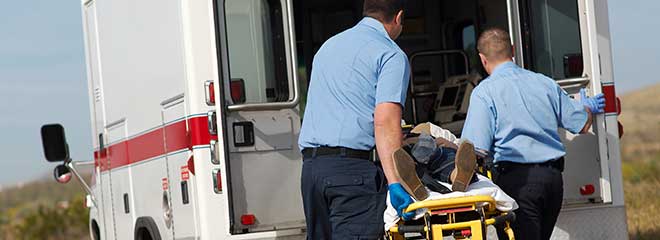
As the opioid epidemic continues to rise, a coroner’s office in Ohio has issued an alert to all first responders to throw away their latex gloves and get better personal protection as they deal with overdose cases involving powerful drugs. According to a WTOV9 news report, it is suspected that latex gloves may allow absorption of drugs and chemicals into the wearer’s tissue potentially turning the rescuer into the victim. These first responders are at risk of being injured at work, and if you have been injured at work too, do not hesitate to contact an experienced lawyer who can file a Rhode Island workers’ compensation lawsuit on your behalf.
How Dangerous Is This Opioid Epidemic?
Incidents involving opioid overdose are now a bulk of the incidents to which emergency personnel respond. For example, in Martins Ferry, Ohio, first responders received four overdose emergency calls just within a four or five-hour period a few weeks ago. Department officials say nearly 40 percent of their calls now are for overdoses. Today, stronger street drugs are being laced with synthetics such as Carfentanil, an opioid that is 5,000 times stronger than heroin and 100 times more potent than fentanyl. Carfentanil is an animal tranquilizer not meant for human consumption. Even a tiny pinch of the drug can put down an elephant. The effect it has on humans in unfathomable. The threat of accidental exposure from these powerful drugs has a number of first responders on edge.

How Can These First Responders Be Safer At Work?
Officials are now turning their attention to personal protective equipment that can help keep first responders safe as they deal with the opioid crisis. The Martins Ferry Fire Department is ditching latex gloves for nitrile gloves, which are made from a synthetic material that is a little thicker and offers more protection. These changes are necessary because in 2016, Ohio had the most Carfentanil seizures in the entire country. In addition to getting these extra-thick gloves, officials are also suggesting that first responders begin to wear masks as new, standard practice.
How Far Reaching Is This Epidemic?
 The U.S. Drug Enforcement Administration (DEA) also warned first responders about the danger of accidental overdoses as they increasingly come in contact with synthetic opioids such as fentanyl. In a new video campaign, the DEA is urging personnel who come in contact with these powerful synthetic drugs to take them directly to a lab. The detectives in the video who came in contact recently with a small amount of fentanyl said they felt “like they were dying.” Even being exposed to an amount equivalent to a few grains of sand can prove fatal, officials say. The DEA is also reporting that first responders handling evidence or helping overdose victims are more frequently reporting breathing issues, dizziness or even loss of consciousness. The DEA first issued a nationwide alert on fentanyl in March 2015, a year when more than 33,000 people died from heroin, fentanyl and other opioid drugs. The preliminary numbers for 2016 show an increase to almost 60,000 deaths, which would be the largest annual increase in American history.
The U.S. Drug Enforcement Administration (DEA) also warned first responders about the danger of accidental overdoses as they increasingly come in contact with synthetic opioids such as fentanyl. In a new video campaign, the DEA is urging personnel who come in contact with these powerful synthetic drugs to take them directly to a lab. The detectives in the video who came in contact recently with a small amount of fentanyl said they felt “like they were dying.” Even being exposed to an amount equivalent to a few grains of sand can prove fatal, officials say. The DEA is also reporting that first responders handling evidence or helping overdose victims are more frequently reporting breathing issues, dizziness or even loss of consciousness. The DEA first issued a nationwide alert on fentanyl in March 2015, a year when more than 33,000 people died from heroin, fentanyl and other opioid drugs. The preliminary numbers for 2016 show an increase to almost 60,000 deaths, which would be the largest annual increase in American history.
Contact d’Oliveira & Associates Today!
 If you have been injured on the job and are being denied workers’ compensation benefits, you should consider hiring a lawyer to help you get the benefits that you deserve. Our firm is working with experienced RI workers’ compensation lawyers and there is no fee until you win your case or get a settlement. Call us toll-free at 1-800-992-6878 or fill out a contact form online, for a free (no obligation) consultation and comprehensive case evaluation.
If you have been injured on the job and are being denied workers’ compensation benefits, you should consider hiring a lawyer to help you get the benefits that you deserve. Our firm is working with experienced RI workers’ compensation lawyers and there is no fee until you win your case or get a settlement. Call us toll-free at 1-800-992-6878 or fill out a contact form online, for a free (no obligation) consultation and comprehensive case evaluation.
Source:


